
Video | Three Hong Kong women weightlifters who aren’t shy about showing their muscles
Powerlifting is growing in popularity among Hong Kong women, who see having a muscular figure as inspiring and feminine and say the sport has boosted their self-confidence
Stephanie Tsui Yan-ting began powerlifting two years ago to find a common interest with her boyfriend, and it has changed her life.
Now she hits the gym five times a week – waking up before dawn and training for two hours before heading to work – and can dead lift 140kg, more than double her weight.
How CrossFit helps a Hong Kong mum keep her family fit and fab
Tsui, 26, who trains at Fitness First, is among a growing number of women getting into weightlifting and resistance training. Nowhere is the trend more apparent than on social media, which is flooded with images of women in their workout gear flexing their biceps, pumping iron and documenting their transformation. The trending hashtag #girlswholift garners 17.8 million results on Instagram alone.
Bobbie Poulton, who has practised like an Olympic weightlifter for nearly 10 years, believes social media has influenced women’s attitudes towards the sport.
“Women are going to the gym and picking up the barbells. They are not scared walking to the weights area any more, whereas before it was completely off limits. Now it’s cool. You can buy pink dumbbells,” says Poulton, 26, a senior strength and conditioning coach at Pinnacle Performance in Wan Chai, and a CrossFit athlete.
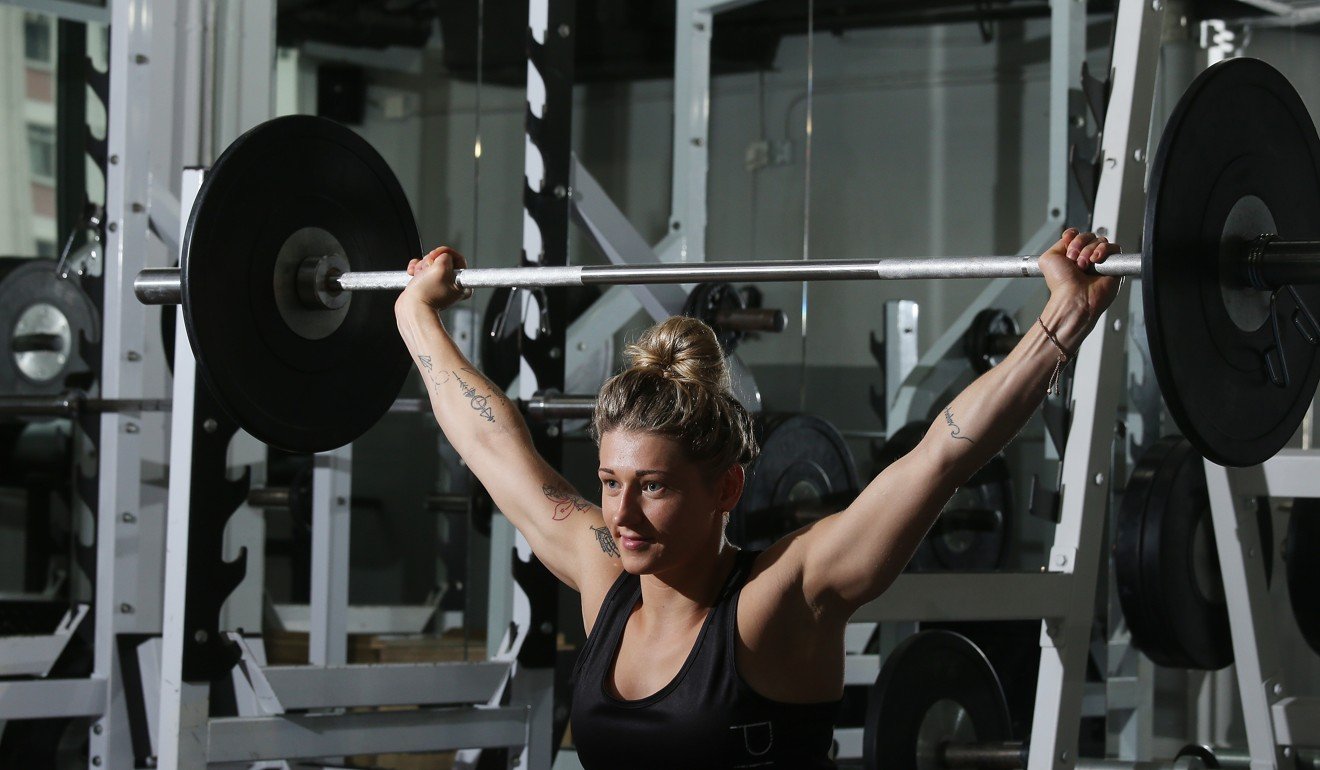
“If you look at the rest of the world, weightlifting has definitely taken off. There are women doing CrossFit, running around with six-packs [well-defined abdominal muscles] … and it’s actually looked upon as an achievement,” Poulton adds.
In Hong Kong and most of Asia, though, the female weightlifting community remains relatively small. One factor stands in the way – the fear of gaining muscles and becoming bulky. The slim beauty ideal is almost universal, but it is more ingrained in Asian societies in which most women are petite and women are held to an even higher standard than elsewhere.
Poulton has had female clients who quit training with her because they deemed her too muscular and worried they would end up looking the same.
Hong Kong women look to raise the bar in a man’s world – personal training
“This has happened four or five times, even though I’ve made it very clear I look the way I do purely because I’ve chosen to train to look like this. It’s actually very difficult to gain muscle mass. If it wasn’t, I’d look like Arnold Schwarzenegger,” says Poulton, who every now and then encounters female clients who panic at the thought of beefing up.
“When I go to the gym with my friends, we celebrate getting bigger muscles,” says Poulton. When a new friend commented on her legs, “oh my god, they are massive”, she gladly took it as a compliment.
In the Asian community, that type of observation is often dished out or taken as a criticism, instead. Tsui recalls being publicly shamed for having big calves – two male strangers on the streets looked her up and down and remarked that her legs were too thick.
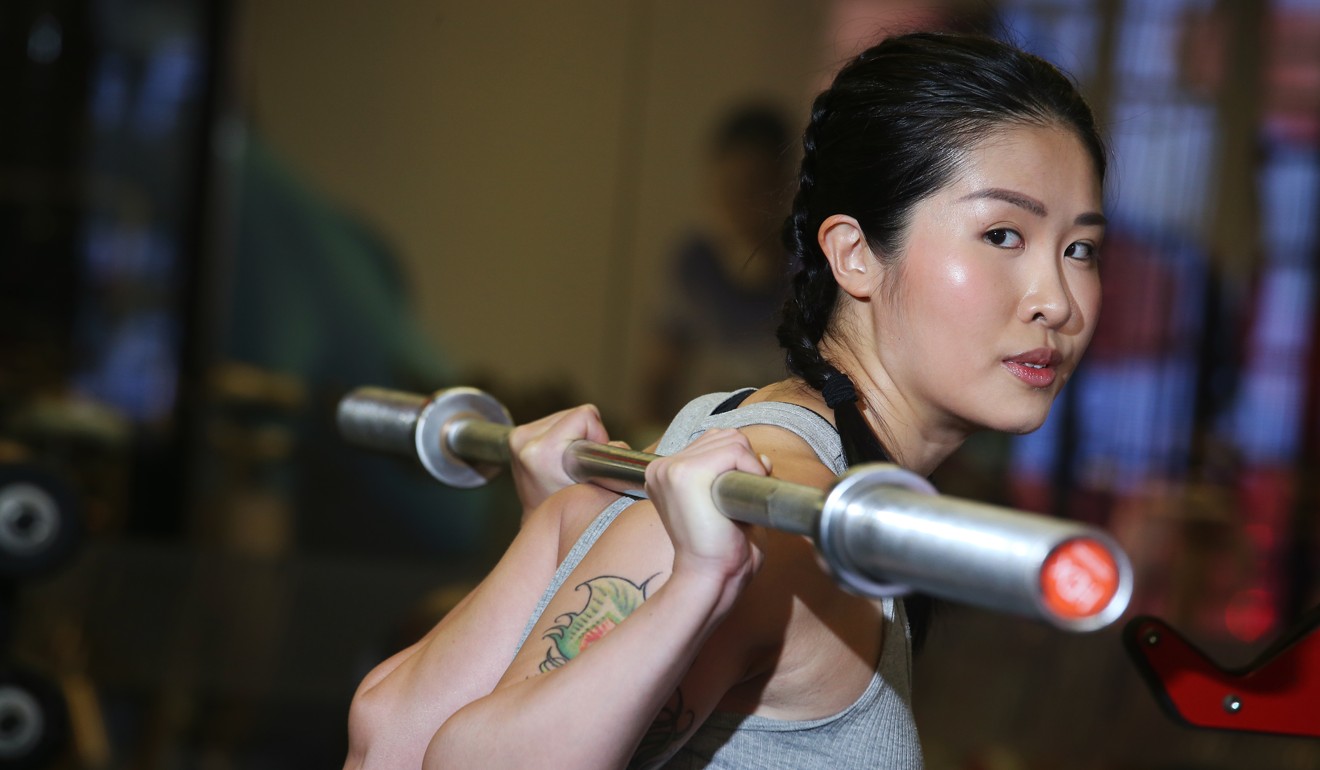
The size of her legs has always been a source of insecurity for Tsui. In high school, to slim down her limbs, she went on diets and exercised so much that she started losing her hair and her period stopped for months. While weightlifting did not make her legs thinner – if anything, she has gained a more muscular frame – she has come to embrace them.
Hong Kong teacher’s journey from 55kg weakling to weightlifting powerhouse
“To a certain extent, how your limbs look are determined by your genes and cannot be changed drastically. Why not just own it and work with what you’ve got? If I can’t be proud of how my thighs look, maybe I can be proud of what they can do,” says Tsui.
Her goal now is to become stronger. If that means buffing up physically, then so be it. There are drawbacks, such as difficulties in finding clothes that fit, but they are minor compared to the health benefits and satisfaction weightlifting brings.
“It’s very empowering. You do not have to rely on men to help you carry things,” says Tsui.
With more representation of fit women in popular culture and social media, traditional beauty ideals are slowly shifting. It helps that more women, like Tsui, are setting performance goals – like lifting more weight – rather than aesthetic ones like losing more weight, and realising what they are capable of.
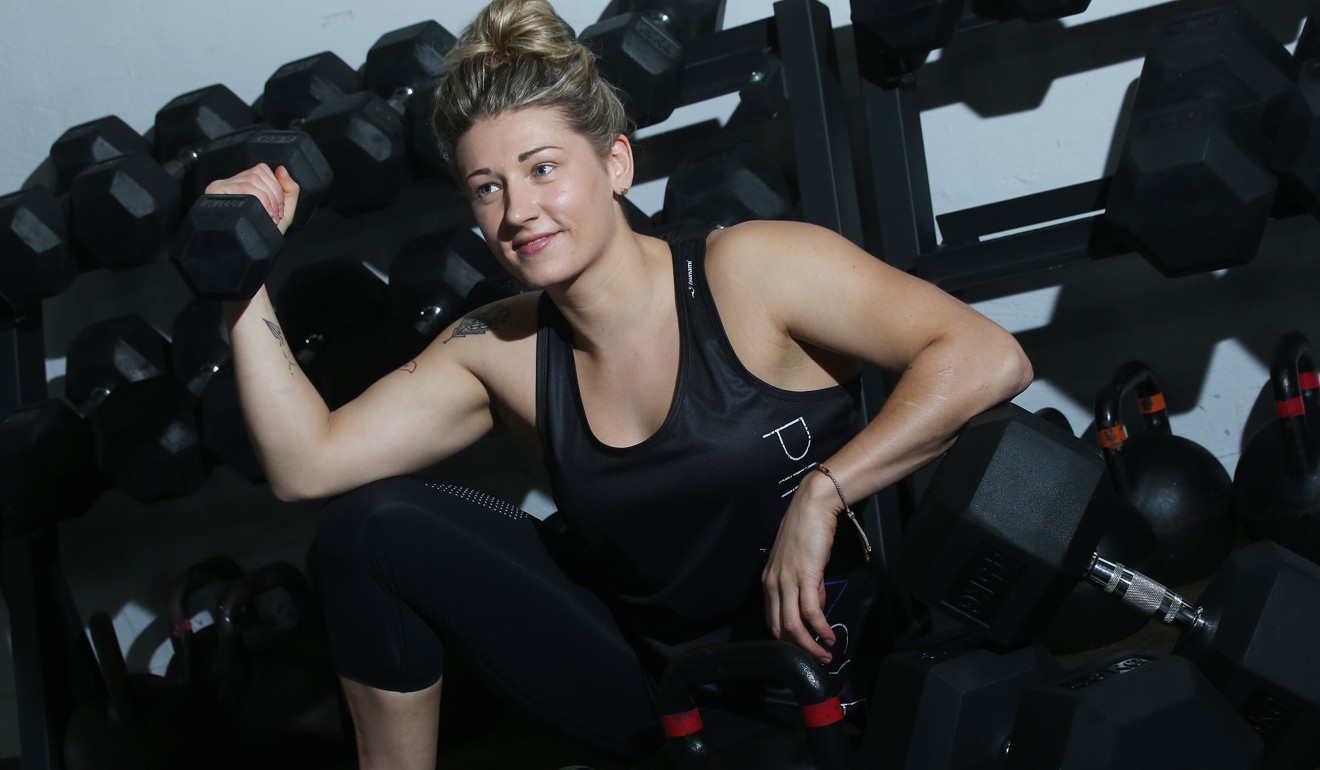
“Before it was hard for me to convince women it’s possible to work towards a pull-up [an exercise in which you hold onto a bar above your head and pull your body up until your chin is above the bar]. Now I’m teaching women to do a muscle-up [an exercise to strengthen the arms and upper body, lifting one’s own weight while hanging from a bar to a position above the bar]. I am seeing more goals like that, rather than just wanting to lose weight. That’s a change I really enjoy seeing,” says Kay Kay Keung, one of the founders of Trybe Studio in Wong Chuk Hang.
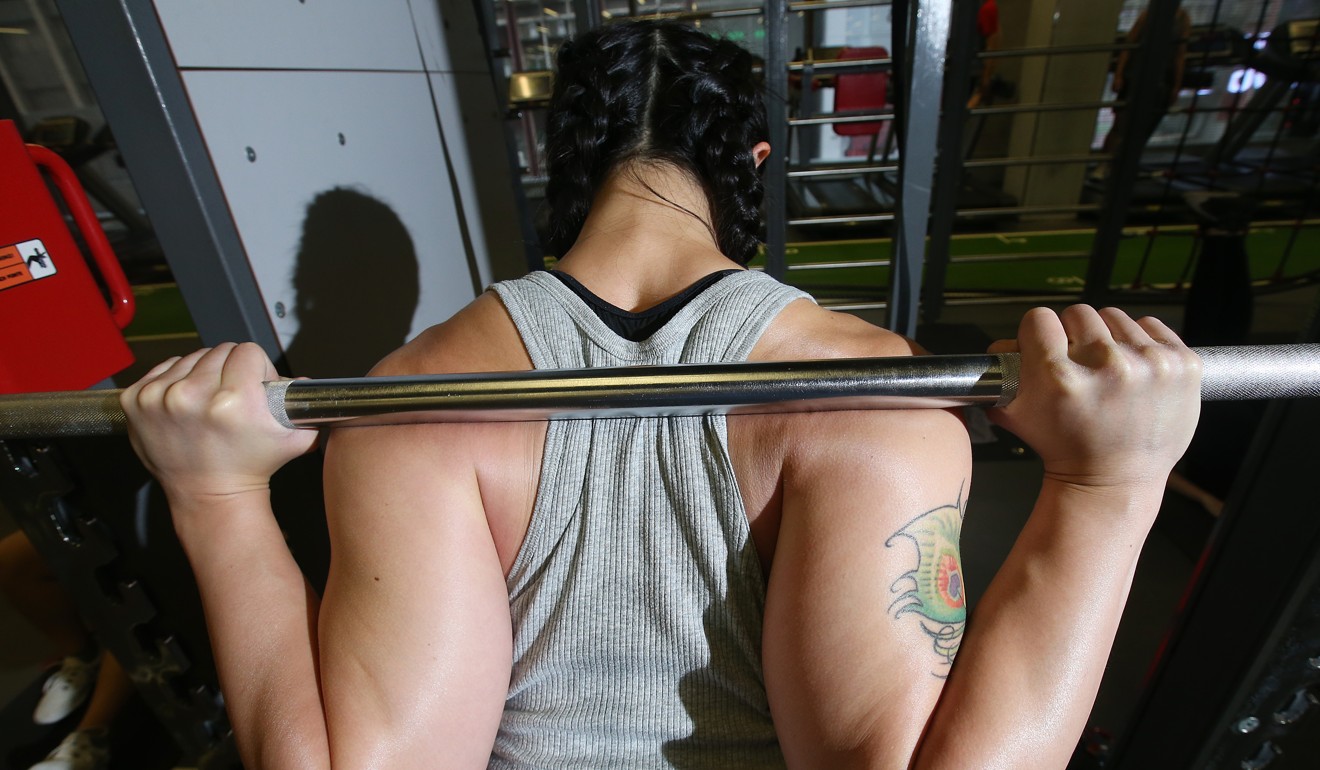
Keung, who grew up in the US state of North Carolina, started weight training at the age of 12 when she followed her older brother into the gym. As a competitive athlete who swims, runs and plays lacrosse as well as American football, becoming stronger gives Keung an edge over other players, even male ones.
Five exercises to give you six-pack abs in 30 days – forget the crunches and sit-ups
“I used to race against boys and even played football with boys. I wanted to make sure I wasn’t the girl who’s getting left out or the weak person on the team.”
Having retired from the Hong Kong lacrosse team after competing in the World Cup this July, Keung is now getting ready to participate in international weightlifting competitions next year.
With more female weightlifters, whether professional or amateur, joining the sport, the obsession over a slender figure is not the only gender stereotype they are breaking.
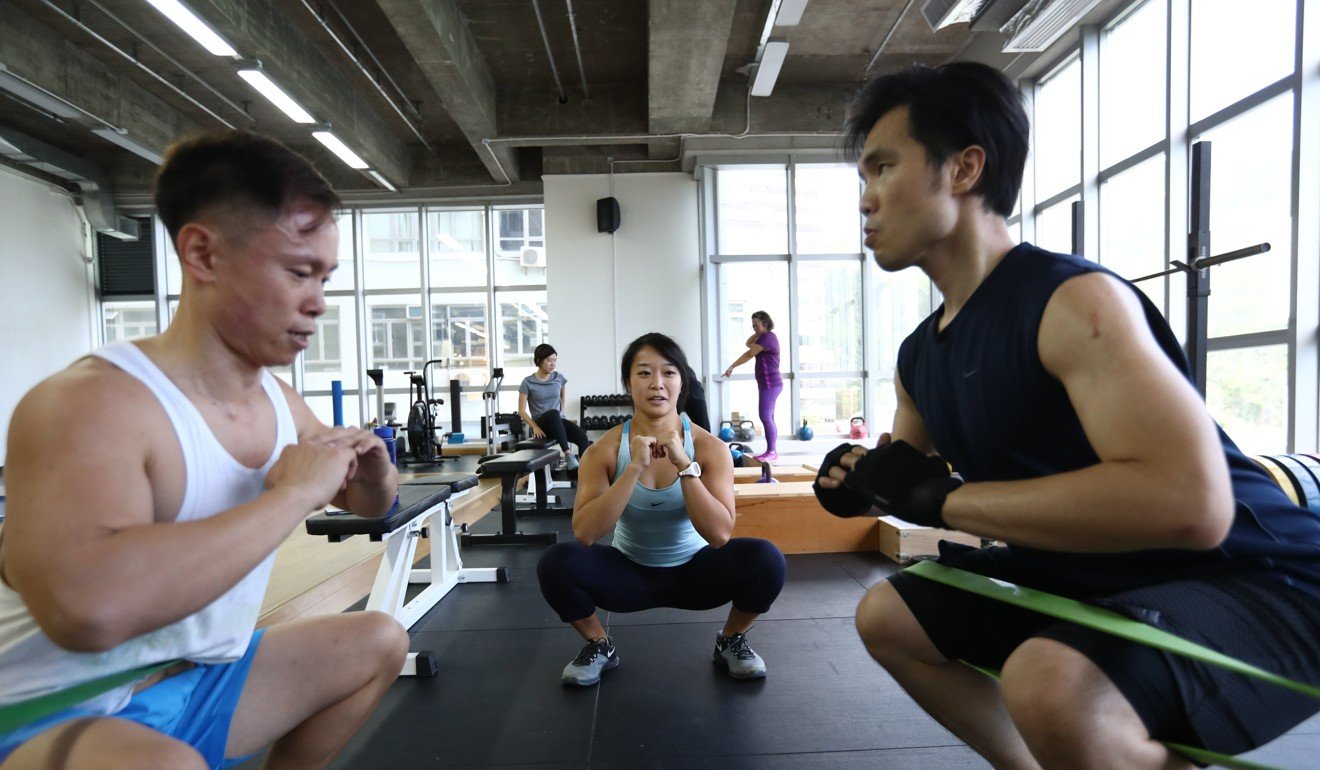
“One fear I had when I started out as a trainer was that people wouldn’t trust me as a coach, because I am female and small. When they think of a trainer, they have an image of a male buff guy, and that’s not what I am,” says Keung, 27. “Even though I have the knowledge or skills, I still had the fear of people not recognising it in females.”
When she first became a personal trainer five years ago, she had 35 male colleagues and only three female ones.
“They would suggest that men train with me because they are attracted to me, not because they think I am a good trainer,” says Keung, of her male colleagues, who also questioned why she did not wear make-up or pull the zip of her jacket a little lower.
Those types of comments have faded and she is the proud owner of her own gym, where three out of five co-founders are women – a positive sign that things are starting to change.
Watch this tiny Taiwanese weightlifter set world record by lifting 4.5 times her body weight – then have to be carried away
For any woman interested in resistance training, Poulton has this simple advice. “Start now. There’s nothing to be scared of. If you are unsure, I’d say speak to a female coach because they will be able to empathise with you.”
She adds: “We all started somewhere.”

